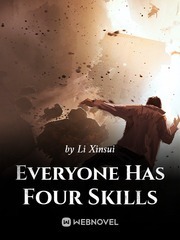Chapter 118: Outer wall
On the outer city wall, both Hong Chengchou and Boluo have come to the front line to inspect and command.
Although the second line of defense is the Beijing city wall that is the key to defending Nanjing, the first city wall cannot be easily given up. If you can use this city wall to give the enemy a lot of damage, it can also defeat the enemy's spirit and reduce the morale of the Wu army.
Of course, it would be even better if it could be defended by the first wall.
However, Hong Chengchou and Boluo are pessimistic about the first line of defense, because Wu Jun now has 80 cannons. If these artillery bombarded a section of the city wall wildly, the rammed earth city wall would definitely be unstoppable.
More importantly, their army's morale is low and lack of fighting spirit. This is the most troublesome thing.
Approaching midday, Wu Jun began a formal general offensive.
The first to launch was the artillery with the farthest attack distance. Their task was to launch solid rounds, bombard one section of the city wall, and destroy it with its powerful kinetic energy.
At the same time, it can also serve as a deterrent to the enemy.
Liu Hansan commanded the left-wing army and was forcing the Manchu prisoners yesterday to landfill the moat and build floating bridges.
Wu Changqing did not discriminate against the captives, but someone had to do the work of filling the moat. In contrast, it was more cost-effective to send the captives.
The pontoon bridge is used to pass people, and the landfill moat is mainly to facilitate the passage of siege equipment such as buildings and vehicles.
The Chinese army is under the command of Li Shaobin, and they are also doing the same thing as Liu Hansan, except that they have an extra fire suppression, which adds some cover to the soldiers filling the moat.
The right-wing army is commanded by Qian Sule. The section of the city wall they attacked is connected to the mountains. They can climb up to the mountains by detours and condescendingly suppress the archery. Of course, this can only play a role that is better than nothing, because the terrain on the mountains is different. It's flat and can't hold many archers at once.
In addition to climbing mountains, they are also building simple earth cities by taking advantage of the convenient access to nearby soil. Build the Tucheng to the height of the enemy's city wall, and they can shoot at the Qing army without losing money.
The Wu army is also very short of guns, so the bow and arrow troops have always been the main force.
Several city gates to the south were being hit by a crash at this time.
These crashes are well-made, with cowhide carports on them, which can withstand the stones and kerosene thrown down the city walls. Those soldiers only need to hide under the carport to drive the crash into the city gate.
There are also some soldiers digging tunnels. They didn't want to invade the city through tunnels. That's unrealistic. There will definitely be people in the city who specialize in "listening to Weng" to prevent Wu Jun from digging tunnels and attacking.
Once found, they can disconnect the tunnel and pour water or smoke into the tunnel. In short, there are many methods.
The most important effect of tunnels is suddenness. Once discovered, they lose their power immediately.
Wu Jun had never thought of digging the tunnel inside. They only needed to dig under the city wall, and then they could bury a large amount of gunpowder for blasting.
This trick was most liked by the troops of the Taiping Heavenly Kingdom in later generations, and the effect was quite good.
However, only a small wall can be blown up.
Like the Beijing city wall in Nanjing, the foundation is as wide as 20 meters, and the ghost knows how much gunpowder is needed to explode.
Of course, most of the city walls in this world are actually low, small city walls. Even if the city wall of Nanjing is a city wall, there are not many in China, that is, Beijing, Xi'an, and some Xiongguan natural dangers.
Except for these places, all that is left are small low walls.
Therefore, there are still many uses for bombing the city wall.
Wu Changqing stood on a high ground, observing the situation of the entire battlefield with a telescope.
Behind him is a group of high-ranking commanders, they don't have to go to the front line to command in person, that would be too dangerous.
Even in the era of cold weapons, it is rare for senior generals to lead the charge. Not to mention that there are a large number of blunderbuss and artillery in the current war, and senior generals will not easily get to the front line.
Moreover, they also need to get together, make judgments on the current situation, make plans and adjustments, and then let the messengers pass down orders.
Eighty cannons aimed at a section of the city wall that was nearly 100 meters away, and the shells poured down on this section of the city wall like raindrops.
In just two rounds of shelling, the soldiers on this section of the wall left a large number of corpses, and the rest ran away.
The generals defending the city did not stop either, because they knew that the Ming army was going to blast through this section of the city wall, so there would be a large number of shells falling on this place next, and they would have to wait for death if they didn't retreat.
And because of the fear that the shells would accidentally injure the friendly army, the Ming army would definitely not launch an offensive on this section of the city wall, and no defense was needed.
The generals defending the city can now ignore this section of the wall, but only need to prepare troops and send troops to plug this gap after the section of the wall collapses.
After filling the river for a period of time, the left-wing troops of Wu Jun finally leveled a section of the river, which can be used for vehicles to pass through.
Subsequently, the left wing began a tentative attack.
As for the general offensive, you have to wait until other troops are also ready for the general offensive, and at the same time launch the general offensive to give the enemy the greatest pressure.
If only Liu Hansan launched a general offensive during this period, the Qing army could deploy elite troops on this section of the wall, or dispatch reserve troops to this section of the wall.
As long as the general offensive is launched across the board, the Qing army is prone to lose sight of one another.
In fact, the Chinese army was also ready for the general offensive. Their flintlock troops shot against the archers on the city wall. They had already wiped out the archers of the Qing army. The rest were afraid to raise their heads. .
Although Wu Jun also lost nearly a thousand people, these thousand people did not have much impact on the strength of the troops. As long as the flintlocks are not damaged, they can directly transfer a thousand soldiers who were using cold weapons.
Although some soldiers in the Ming Army used cold weapons, they usually trained on firearms, so that they could be directly supplemented and replaced on the battlefield.
On the other hand, after the flintlocks are made, they can be directly replaced to form combat power.
Therefore, on the surface it appears that the Ming army lost 1,000 main flintlock troops, but after such supplementation, the actual loss was only 1,000 cold weapon units, which did not have much impact on the Ming army’s combat effectiveness.
The Qing army was miserable. Nearly two thousand archers died directly. These were all veterans who had trained for one or two years. These people are gone, and it's impossible to temporarily supplement them.
Ordinary soldiers can also shoot bows and arrows, but the accuracy and strength are very different, and there is no power at all.
Hong Chengchou on the city wall noticed the situation of the Ming army's flintlock unit through a telescope, and almost vomited blood on the spot.
This is too shameless. What you have lost is a special elite soldier, but what the enemy has killed is cannon fodder that can be replenished at any time.
He discovered another great advantage of Firecrackers, that is, the training of soldiers is simple, it is very easy to train qualified soldiers, and the army can be expanded quickly.
This is also very important. Like the Manchu warfare, if the cavalry and archers die too much at once, it is very difficult to restore their vitality, so it is difficult to expand the results.
However, Wu Changqing's Ming Army did not have such a dilemma. The recruitment of soldiers was too easy, and the continuous combat capability of the army was terrible.
what can we do about it?
Hong Chengchou was lost in thought. He didn't just want to hold Nanjing now, but also how to deal with Wu Changqing in the future.
After thinking about it for a while, Hong Chengchou found that there seemed to be only one way, and that was to build the same firearms as Wu Changqing.
Then the problem returned to the weapon. He needed the craftsmanship of the flintlock, and he needed the secret of the flintlock. I built the latest chapter address of the aircraft carrier in Daming: https://www.novelhall.com/book/149212.htmlI built the full text of the aircraft carrier in Daming to read the address: https://www.novelhall.com/read/149212/I built the aircraft carrier txt download address in Daming: https://www.novelhall.com/down/149212.htmlI read it on the mobile phone built by Daming: https://m.novelhall.com/read/149212/In order to facilitate the next reading, you can click "Favorites" below to record the reading record of this time (Chapter 118 Outer City Wall), and you can see it next time you open the bookshelf! If you like "I Build an Aircraft Carrier in Daming", please recommend this book to your friends (QQ, blog, WeChat, etc.), thank you your support! (www.novelhall.com)
Although the second line of defense is the Beijing city wall that is the key to defending Nanjing, the first city wall cannot be easily given up. If you can use this city wall to give the enemy a lot of damage, it can also defeat the enemy's spirit and reduce the morale of the Wu army.
Of course, it would be even better if it could be defended by the first wall.
However, Hong Chengchou and Boluo are pessimistic about the first line of defense, because Wu Jun now has 80 cannons. If these artillery bombarded a section of the city wall wildly, the rammed earth city wall would definitely be unstoppable.
More importantly, their army's morale is low and lack of fighting spirit. This is the most troublesome thing.
Approaching midday, Wu Jun began a formal general offensive.
The first to launch was the artillery with the farthest attack distance. Their task was to launch solid rounds, bombard one section of the city wall, and destroy it with its powerful kinetic energy.
At the same time, it can also serve as a deterrent to the enemy.
Liu Hansan commanded the left-wing army and was forcing the Manchu prisoners yesterday to landfill the moat and build floating bridges.
Wu Changqing did not discriminate against the captives, but someone had to do the work of filling the moat. In contrast, it was more cost-effective to send the captives.
The pontoon bridge is used to pass people, and the landfill moat is mainly to facilitate the passage of siege equipment such as buildings and vehicles.
The Chinese army is under the command of Li Shaobin, and they are also doing the same thing as Liu Hansan, except that they have an extra fire suppression, which adds some cover to the soldiers filling the moat.
The right-wing army is commanded by Qian Sule. The section of the city wall they attacked is connected to the mountains. They can climb up to the mountains by detours and condescendingly suppress the archery. Of course, this can only play a role that is better than nothing, because the terrain on the mountains is different. It's flat and can't hold many archers at once.
In addition to climbing mountains, they are also building simple earth cities by taking advantage of the convenient access to nearby soil. Build the Tucheng to the height of the enemy's city wall, and they can shoot at the Qing army without losing money.
The Wu army is also very short of guns, so the bow and arrow troops have always been the main force.
Several city gates to the south were being hit by a crash at this time.
These crashes are well-made, with cowhide carports on them, which can withstand the stones and kerosene thrown down the city walls. Those soldiers only need to hide under the carport to drive the crash into the city gate.
There are also some soldiers digging tunnels. They didn't want to invade the city through tunnels. That's unrealistic. There will definitely be people in the city who specialize in "listening to Weng" to prevent Wu Jun from digging tunnels and attacking.
Once found, they can disconnect the tunnel and pour water or smoke into the tunnel. In short, there are many methods.
The most important effect of tunnels is suddenness. Once discovered, they lose their power immediately.
Wu Jun had never thought of digging the tunnel inside. They only needed to dig under the city wall, and then they could bury a large amount of gunpowder for blasting.
This trick was most liked by the troops of the Taiping Heavenly Kingdom in later generations, and the effect was quite good.
However, only a small wall can be blown up.
Like the Beijing city wall in Nanjing, the foundation is as wide as 20 meters, and the ghost knows how much gunpowder is needed to explode.
Of course, most of the city walls in this world are actually low, small city walls. Even if the city wall of Nanjing is a city wall, there are not many in China, that is, Beijing, Xi'an, and some Xiongguan natural dangers.
Except for these places, all that is left are small low walls.
Therefore, there are still many uses for bombing the city wall.
Wu Changqing stood on a high ground, observing the situation of the entire battlefield with a telescope.
Behind him is a group of high-ranking commanders, they don't have to go to the front line to command in person, that would be too dangerous.
Even in the era of cold weapons, it is rare for senior generals to lead the charge. Not to mention that there are a large number of blunderbuss and artillery in the current war, and senior generals will not easily get to the front line.
Moreover, they also need to get together, make judgments on the current situation, make plans and adjustments, and then let the messengers pass down orders.
Eighty cannons aimed at a section of the city wall that was nearly 100 meters away, and the shells poured down on this section of the city wall like raindrops.
In just two rounds of shelling, the soldiers on this section of the wall left a large number of corpses, and the rest ran away.
The generals defending the city did not stop either, because they knew that the Ming army was going to blast through this section of the city wall, so there would be a large number of shells falling on this place next, and they would have to wait for death if they didn't retreat.
And because of the fear that the shells would accidentally injure the friendly army, the Ming army would definitely not launch an offensive on this section of the city wall, and no defense was needed.
The generals defending the city can now ignore this section of the wall, but only need to prepare troops and send troops to plug this gap after the section of the wall collapses.
After filling the river for a period of time, the left-wing troops of Wu Jun finally leveled a section of the river, which can be used for vehicles to pass through.
Subsequently, the left wing began a tentative attack.
As for the general offensive, you have to wait until other troops are also ready for the general offensive, and at the same time launch the general offensive to give the enemy the greatest pressure.
If only Liu Hansan launched a general offensive during this period, the Qing army could deploy elite troops on this section of the wall, or dispatch reserve troops to this section of the wall.
As long as the general offensive is launched across the board, the Qing army is prone to lose sight of one another.
In fact, the Chinese army was also ready for the general offensive. Their flintlock troops shot against the archers on the city wall. They had already wiped out the archers of the Qing army. The rest were afraid to raise their heads. .
Although Wu Jun also lost nearly a thousand people, these thousand people did not have much impact on the strength of the troops. As long as the flintlocks are not damaged, they can directly transfer a thousand soldiers who were using cold weapons.
Although some soldiers in the Ming Army used cold weapons, they usually trained on firearms, so that they could be directly supplemented and replaced on the battlefield.
On the other hand, after the flintlocks are made, they can be directly replaced to form combat power.
Therefore, on the surface it appears that the Ming army lost 1,000 main flintlock troops, but after such supplementation, the actual loss was only 1,000 cold weapon units, which did not have much impact on the Ming army’s combat effectiveness.
The Qing army was miserable. Nearly two thousand archers died directly. These were all veterans who had trained for one or two years. These people are gone, and it's impossible to temporarily supplement them.
Ordinary soldiers can also shoot bows and arrows, but the accuracy and strength are very different, and there is no power at all.
Hong Chengchou on the city wall noticed the situation of the Ming army's flintlock unit through a telescope, and almost vomited blood on the spot.
This is too shameless. What you have lost is a special elite soldier, but what the enemy has killed is cannon fodder that can be replenished at any time.
He discovered another great advantage of Firecrackers, that is, the training of soldiers is simple, it is very easy to train qualified soldiers, and the army can be expanded quickly.
This is also very important. Like the Manchu warfare, if the cavalry and archers die too much at once, it is very difficult to restore their vitality, so it is difficult to expand the results.
However, Wu Changqing's Ming Army did not have such a dilemma. The recruitment of soldiers was too easy, and the continuous combat capability of the army was terrible.
what can we do about it?
Hong Chengchou was lost in thought. He didn't just want to hold Nanjing now, but also how to deal with Wu Changqing in the future.
After thinking about it for a while, Hong Chengchou found that there seemed to be only one way, and that was to build the same firearms as Wu Changqing.
Then the problem returned to the weapon. He needed the craftsmanship of the flintlock, and he needed the secret of the flintlock. I built the latest chapter address of the aircraft carrier in Daming: https://www.novelhall.com/book/149212.htmlI built the full text of the aircraft carrier in Daming to read the address: https://www.novelhall.com/read/149212/I built the aircraft carrier txt download address in Daming: https://www.novelhall.com/down/149212.htmlI read it on the mobile phone built by Daming: https://m.novelhall.com/read/149212/In order to facilitate the next reading, you can click "Favorites" below to record the reading record of this time (Chapter 118 Outer City Wall), and you can see it next time you open the bookshelf! If you like "I Build an Aircraft Carrier in Daming", please recommend this book to your friends (QQ, blog, WeChat, etc.), thank you your support! (www.novelhall.com)







